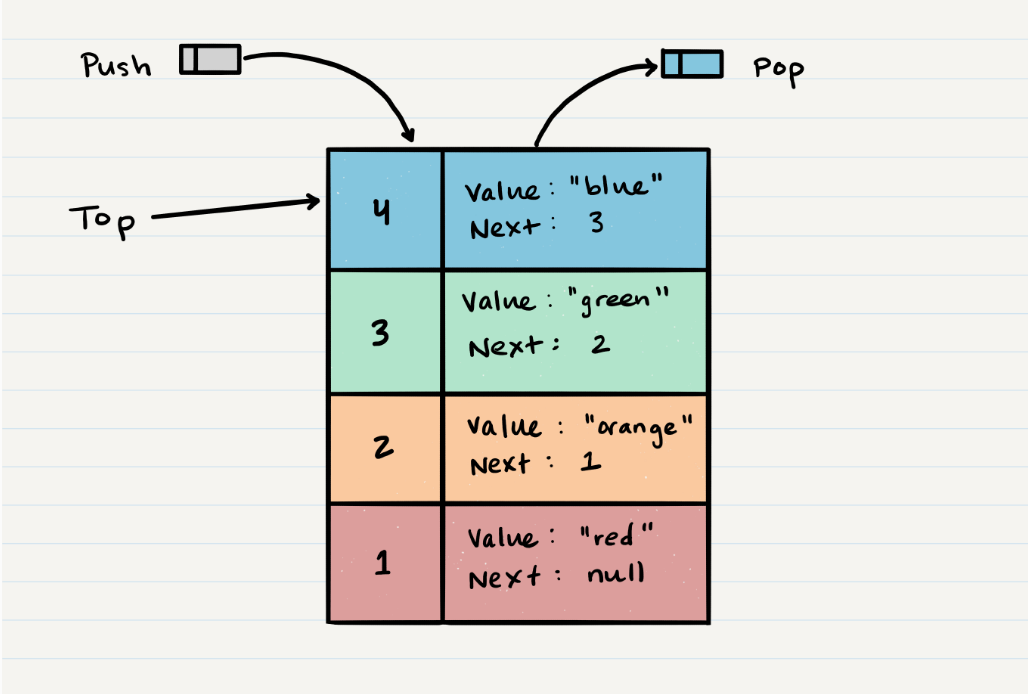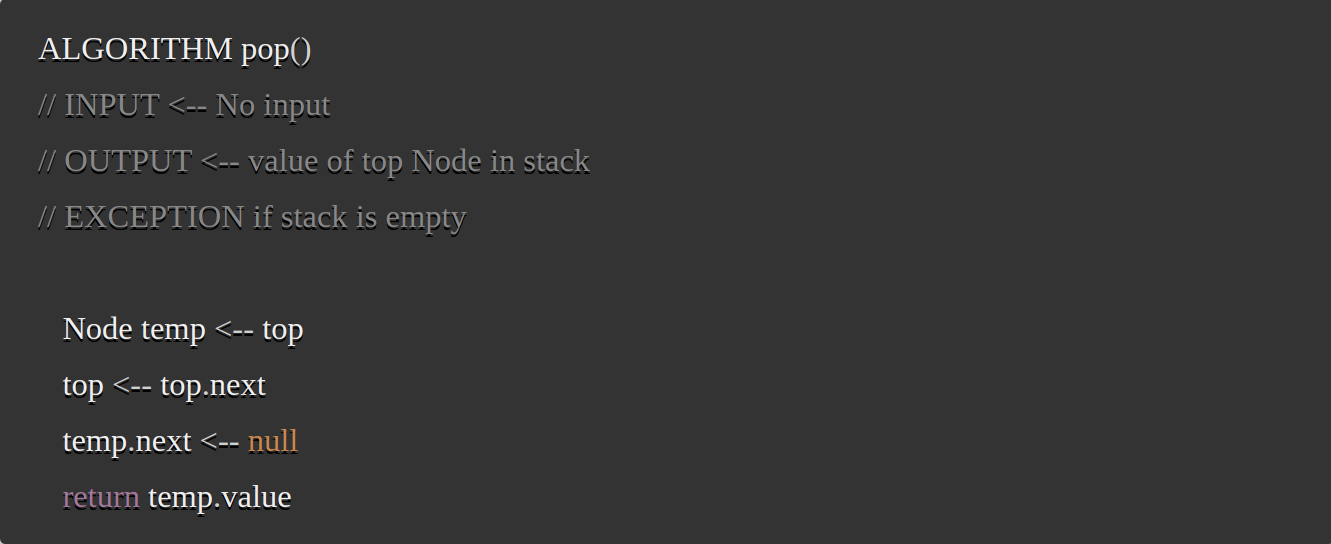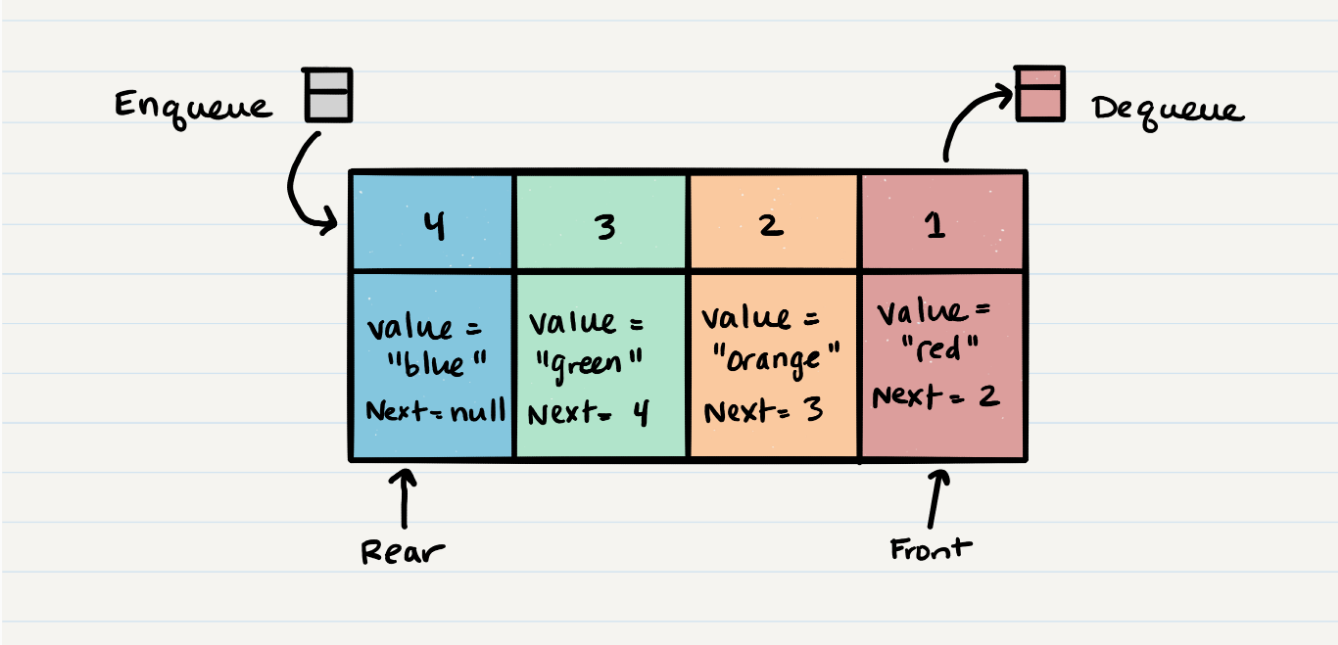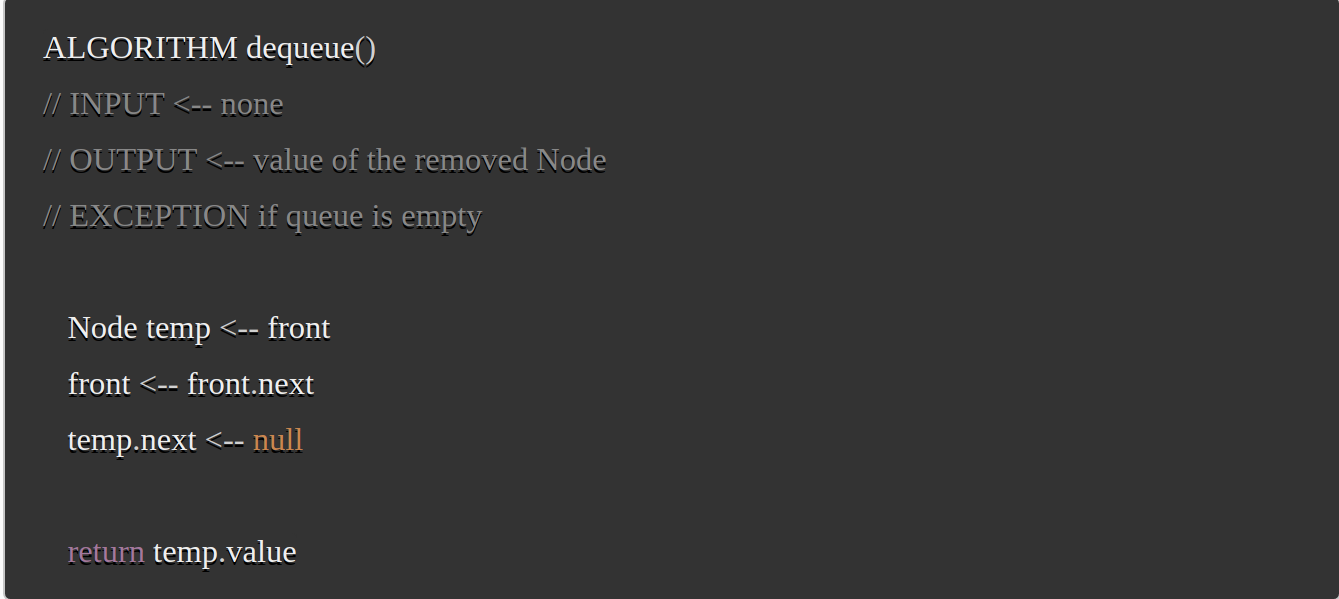Stacks
A stack is a data strucure that consists of Nodes. Each Node references the next Node in the
stack, but does not reference its previous.
Common terms:
Push- Nodes or items that are put into the stack are pushedPop- Nodes removed from the stack are popped. When you attempt topopan empty stack an exception will be raised.Top- This is the top of the stacPeek- When youpeekyou will view the value of thetopNode in the stack. When you attempt topeekan empty stack, an exception will be raised.isEmpty- a boolean value used to determine if a stack is empty
Stacks follow these concepts:
First In Last Out The first item added in the stack will be the last item popped out of the stack.
Last Iin First Out The last item added to the stack will be the first item popped out of the stack.

Pushing a Node onto a stack will always be an O(1) operation because it takes the same amount of time no matter how many Nodes are in the stack.
When adding a Node, you push it into the stack by assigning it as the new top, with its next
property equal to the original top

Popping a Node off a stack is the action of removing a Node from the top. When conducting a
pop, the top Node will be re-assigned to the Node that lives below and the top Node is
returned to the user. Typically, you would check isEmpty before conducting a pop. This will
ensure that an exception is not raised. Alternately, you can wrap the call in a try/catch block.

Queue
Unlike stacks, Queues are First In First Out. The last item in the queue will be the last item out of the queue.


Enqueue - Nodes or items that are added to the queue.

Dequeue - Nodes or items that are removed from the queue. If called when the queue is empty an exception will be raised.
Front - This is the front/first Node of the queue.
Rear - This is the rear/last Node of the queue.
Peek - When you peek you will view the value of the front Node in the queue. If called when the queue is empty an exception will be raised.
IsEmpty - returns true when queue is empty otherwise returns false.